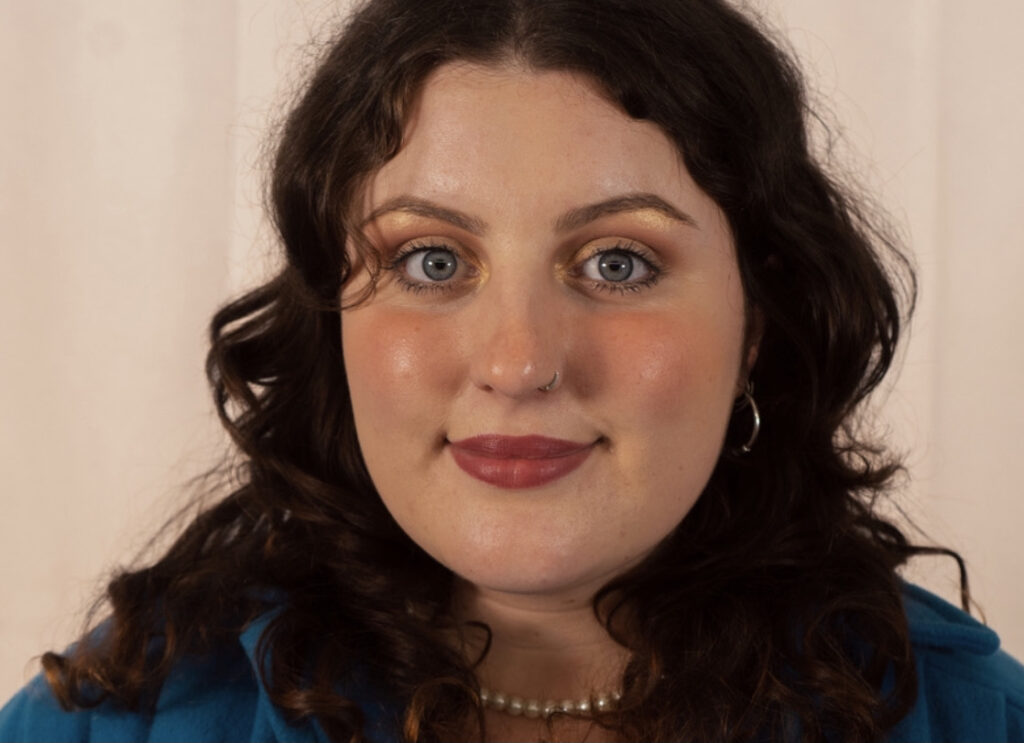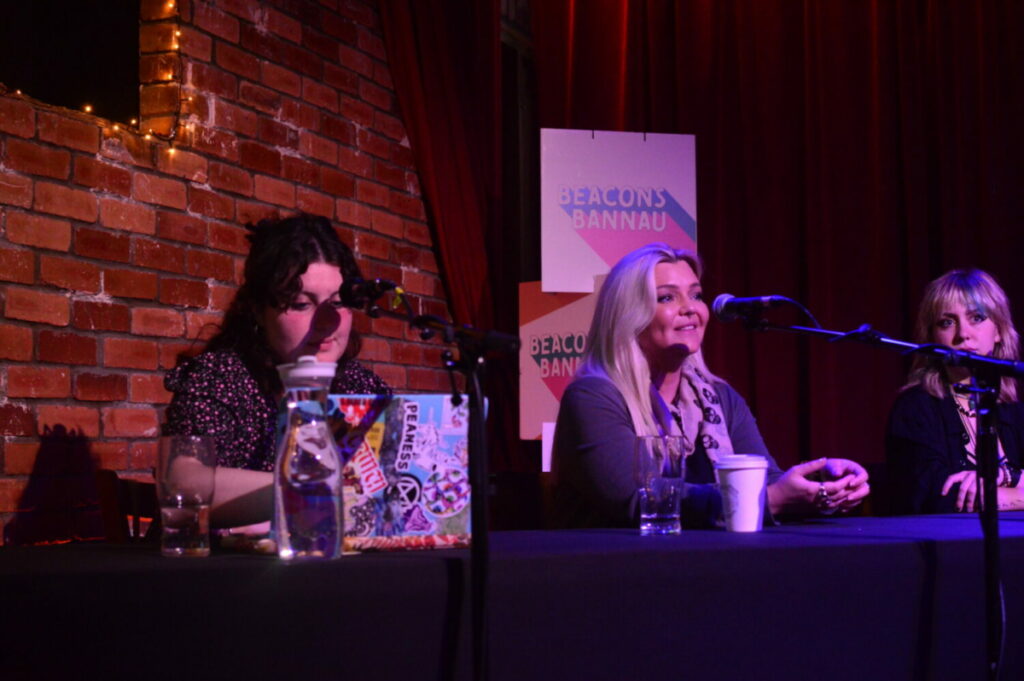Alexandra Jones explores the music education system in Wales and what changes can be made to improve opportunities for young Welsh music industry professionals.
My pathway to a career in the music industry was not a smooth one.
In primary school we had a handful of violins and cornets to be shared around the entire junior department. The audition process for lessons involved being turned to face the wall, the teacher playing a few notes on the piano, and trying to guess them correctly. In comprehensive school, there was never a consistent music teacher and my class was so unruly that we barely made it through a lesson plan.
Beyond my time in secondary school, I found myself at college on a BTEC Music Performance course after my brother attended the same course and had a positive experience. My decision paid off – the course was as enjoyable as my brother made it out to be. There were great facilities for recording and performing music and the tutors were attentive and proactive. However, in the two years of my qualification as a vocalist, I didn’t have a single vocal lesson or receive any vocal coaching. In both college and school, I received next to nothing in terms of career advice.
Following my stint in college, I enrolled at a university in Wales. Deviating from a career in music performance, I instead went for a course called ‘Music Business’ that focused on the behind-the-scenes aspects of the industry. This felt like an exciting new avenue to explore.
An underlying theme of disappointment ran right through a lot of my experiences.
Sadly, my experience wasn’t as exciting as I hoped. Opportunities to gain industry work experience were advertised, but never materialised. At one point I was told the funding for the music department had been diverted to sustain other music-based courses. This felt especially harsh, given that my course didn’t even have a designated classroom during my degree. All this came to a crashing head when a new ambitious music festival, curated and organised by my university was announced. People on my course were forbidden to be involved due to politics among course leaders. It felt like a kick in the teeth.
Then the Covid-19 pandemic hit. I was midway through my final year at university and it felt like my education and future career in music was coming to a screeching and disappointing halt. My entire creative education felt outdated, underfunded, and lacked consistency, quality and opportunities. An underlying theme of disappointment ran right through a lot of my experiences. I used to think it was simply because I was from a working class area that this career pursuit was possibly just out of reach.
Robust debate and agenda-setting research.
Support Wales’ leading independent think tank.
I recognise that I am privileged in a number of ways. I imagine that the issues I’ve spoken about above regarding my education would be even more debilitating if I were part of a more marginalised group. But I still found them hard to overcome.
In January 2021, I started a music blog which interviewed and promoted artists from around Cardiff. After a few months, it gathered attention from the music community. This led to me being invited to multiple focus group discussions within the industry and truly feeling heard. It was the first time that any organisation had taken my working class experiences seriously.
Those discussions, along with my experiences, have led me to put together a manifesto for change in the Welsh music industry.
Improve public transport
This isn’t directly related to the music industry, but could have a huge effect on it, especially in rural communities around Wales. There isn’t a train station in my hometown of Blackwood and buses stop at 9pm. Crucially, that’s the time when the music starts in the venue I work for in Cardiff. Make buses and trains run later, more frequently, and stop at more locations. This could benefit the live music community in Wales greatly.
Address language barriers
Although this has improved with the new Welsh Government initiatives, language barriers in terms of understanding, connection and collaboration affect people working in the music industry in Wales. The Welsh language music sector and the English language music sector in Wales can feel separate. Working in the music industry, I was at times made to feel like I wasn’t Welsh enough if I couldn’t speak the language fluently. What I’d like to see is more opportunities for Welsh language music makers and English language music makers to connect, coexist, collaborate and support one another.
Progress has been made in terms of the success of events like Tafwyl and the thriving music venue Clwb Ifor Bach. However, I think we still have a long way to go.

Musicians like CHROMA, Mali Hâf and Adwaith bridge a gap by sometimes singing in both Welsh and English, making it accessible to learners. Though Mari Mathias sings completely in Welsh and should not have to compromise on this, as a Welsh learner I find it really helpful that she explains the meaning and the stories of her songs, sometimes directly translating the hook.
In a way to try to connect more with Welsh language music, I had an idea to create a lyric resource that translates Welsh lyrics from Welsh language music into English. A friend and member of Mellt told me that this could be hard to put into practice, saying it might come across as devaluing the Welsh language because some words and phrases don’t directly translate and the meaning of the song can get lost. This is an example of how hard the issue of separation feels sometimes. I’d like to see work being done to support and address language barriers in Wales.
End musical landscape division in Wales
Help rural areas of Wales access musical opportunities. Participating in focus groups and forums has shown me that entire areas of Wales feel musically disconnected.
Most opportunities in the industry are situated in Cardiff. How can we ensure that someone making music in the furthest point of west Wales feels valued and able to engage with the music industry in the same way as someone who lives in central Cardiff?
A young person from north Wales who I mentor is desperate to create an accessible space dedicated to live music. At the moment, they are only able to put on a gig in a pub in their local area – and even that is a struggle for them. There’s a want and need for live music in rural areas but a lack of funding and support to get the ball rolling.
Support the creation of meaningful connections with other territories
The Welsh music industry can feel insular. It can be challenging for bands to break out of the country. How do we illuminate a pathway to export music out of Wales and import music from other countries? If London is the music capital of the UK, how do we form a stronger bond and achieve greater visibility there? Ultimately, how do we establish a connection with other territories where we are taken seriously and viable as an industry?
I’d like to see these questions answered. Although FOCUS Wales does some work towards this, I’d like to see more organisations working towards this goal.
Highlight viable music career pathways
Unclear career pathways are also a problem in the Welsh music industry.
Organisations like Beacons Cymru and Anthem Cymru have established the idea that there are viable routes into careers in the Welsh Music industry. Curated by young people, each project, workshop and event held supports young people with a dream to sustain a living in music in Wales.
There are a number of grassroots organisations doing so much to support those who wish to be involved with the music industry such as Ladies of Rage, Sound Progression, Merched yn Gwneud Miwsig, Anthem Cymru, Radio Platfform, Larynx Entertainment and Foxy Roxies – to name a few. What I’d like to see is more work experience opportunities and more shadowing opportunities for industry roles. I’d like for any person wishing to work within the music industry to have a clear pathway and ladder of progression ahead of them, with accessible resources attached.
Ensure equal and diverse representation and further opportunities are prominent throughout all sectors
Everyone deserves a seat at the table, and should not be denied one due to class, race, gender, sexual orientation, or because of any aspect of their identity, whatever it may be.
I see the desperation firsthand from young people in their disconnected locales, who want for a better reality in Wales.
At Beacons Cymru, we try to ensure that as many people are supported as possible and that our resources cater to different fields within industry. For example, Resonant supports marginalised genders in industry roles ranging from production, sound engineering, stage lighting to event promotion. Honey Sessions supports the MOBO (Music of Black Origin) scene by pairing up vocalists with producers and creating collaboration tracks as well as offering industry tuition throughout. Transform supports the trans community with an in-depth ongoing research project into the experiences of trans people with the result of creating guidelines for music venues to pledge to and abide by. Flourish supports the wellbeing of those in the industry with a podcast interviewing mental health professionals. Forté Project supports original music makers in Wales with industry tuition, recording support, mentorship, live opportunities and more. CRWTH supports music journalists in creating publications as well as platforming musicians, artists, poets and industry professionals in Wales. YPN supports those who want to put on live music events and create music scenes in their local areas. Finally, Summit is a mash-up of all projects in the form of a yearly conference and festival which is due to take place shortly. Like a travelling circus, we also do mini versions of Summit around the country in the form of ‘Basecamps’. At Basecamps, I see the desperation firsthand from young people in their disconnected locales, who want for a better reality in Wales.
I have learned a lot through my own experiences and the challenges I have faced. I hope that with this manifesto we can better support the future generations of Welsh musicians to flourish.
All articles published on the welsh agenda are subject to IWA’s disclaimer. If you want to support our work tackling Wales’ key challenges, consider becoming a member.
This article was commissioned and edited by Maisie Allen thanks to the Books Council of Wales’ New Audiences Fund.





